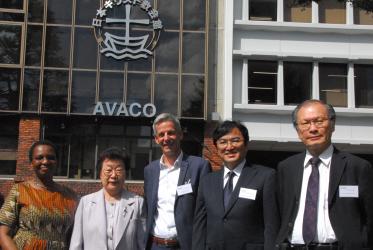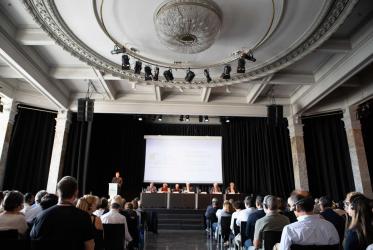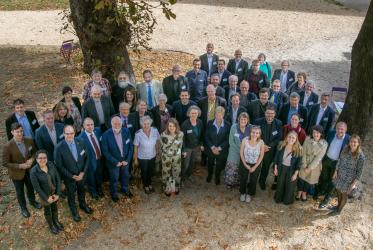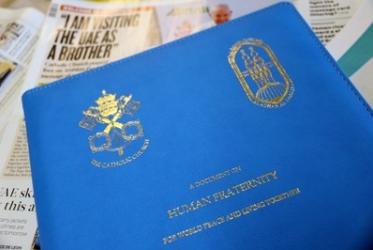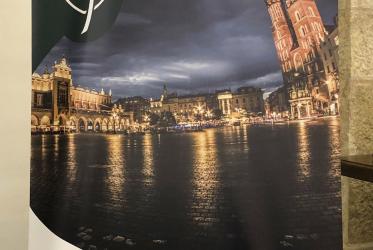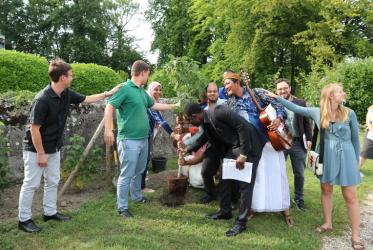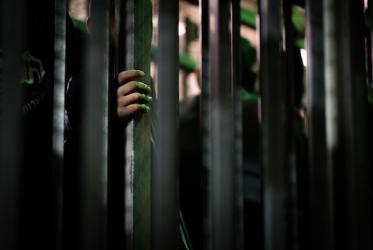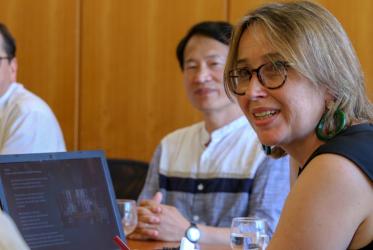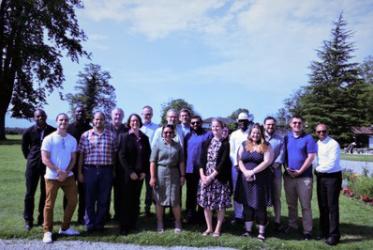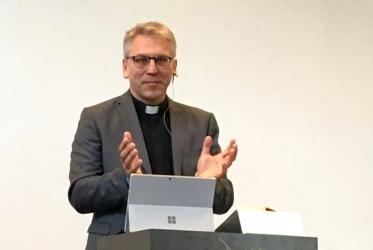Displaying 61 - 80 of 293
07 October 2019
In Korea, young ‘stewards of hope’ forge ahead together
19 September 2019
In Japan, theologians reflect on today’s global manifestations of racism
18 September 2019
Religions for Peace calls for "shared well-being”
26 August 2019
A passionate Korean feminist and ecumenist
21 August 2019
Religions for Peace assembly convenes in Lindau
19 August 2019
Bossey students explore the meaning of “belonging”
22 July 2019
Bossey gathers students for interreligious dialogue
02 July 2019
WCC represented at G20 Interfaith forum in Tokyo
13 June 2019


